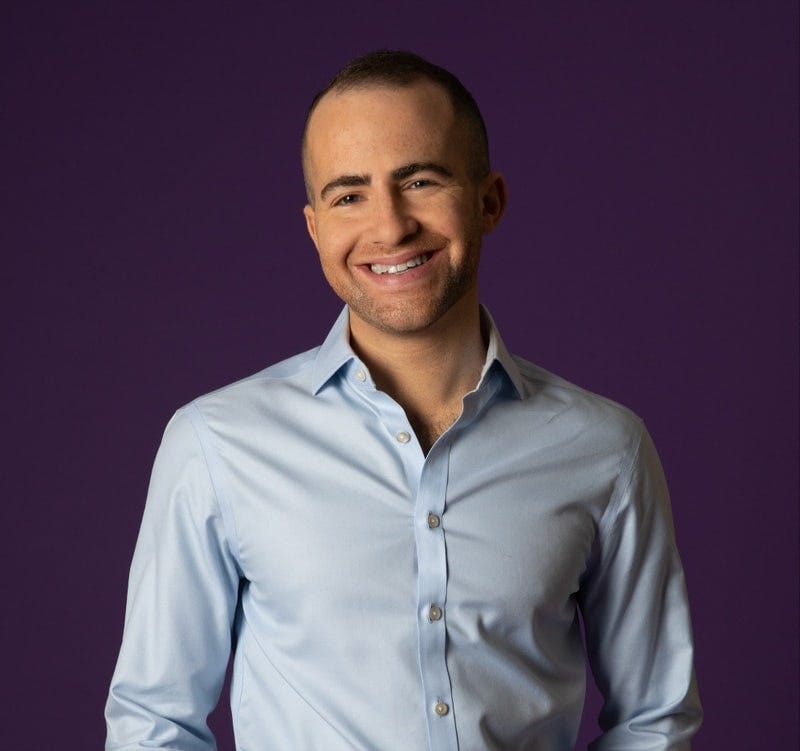The Future of Marketing is People.
The Future Does Not Fit in the Containers of the Past. Edition 130.
The future of marketing is people.
A) It is about understanding people as people and not just as consumers, customers, members, and users.
B) It is about getting people to advocate for a brand to other people.
C) It is about upgrading the status of marketing people and upgrading marketing people.
Marketing is about understanding people.
For too long marketers have fixated on consumers, customers, members, and users.
While these are important what is critical is seeking to understand people as people.
When one looks at a person as a consumer one is liable to miss a lot for the following reasons.
1) Narrow Lens: When one looks at a person as a consumer it is looking to understand the person through brand usage which is by very definition one of hundreds of brands filling met and unmet needs of a person. People do not define themselves by brands and rarely want to have relationships with brands. Some marketers define themselves by brands and have the delusion that people want to have a relationship with Tylenol versus just wanting their headache to go away.
2) Failure to see competitive threats: Viewing people as consumers or users means evaluating and benchmarking one’s brands with their use of other brands in one’s category. However, the greatest threat and opportunity tends to come from outside one’s category today due to technological disruption and changing behavior. Newspapers were disrupted by Google. Magazines by Instagram and today Television by Netflix and TikTok for example. Focusing on consumers and users meant that none of the incumbents were monitoring these other players. A focus on one’s category may lead a brand to be less pathetic than others in their category but not great or relevant for the future.
3) Failure to understand needs: One of the reasons categories get disrupted from outside is because by seeking to understand a person through category dynamics one may miss understanding what they are truly seeking. Dollar Shave Club and Harry users were not just looking for the best shave but a decent shave at a great price and convenient purchase. Multiple blades, vibrating blades, heated blades were no longer the key.
Marketing is getting people to advocate for you to other people.
The most powerful form of marketing has always been word of mouth.
Word of mouth has become exponentially more powerful due to social media and new tools and technologies.
Tik Tok provides editing and other tools to let anyone create and mix videos. Substack enables reaching tens of thousands to millions of people. It is easy to create and distribute podcasts.
Social media channels enable distribution.
Influencers and creators become key to a brand.
Instead of marketing to people we should consider marketing through people by arming them with assets, information, tools, and incentives.
Also, every marketing company should fixate on their employees and suppliers.
Make employees advocates by treating them well and aligning them with the marketing program.
Inform, trust, and pay suppliers well. They can be a source of ideas, marketing, and competitive intelligence.
Emerging AI tools such as ChatGPT will further empower the individual and the underlying trends of Web3 will now give them not just a voice but ownership.
Every company’s marketing and media programs should be grounded in marketing through people with significant investment and emphasis on generating and building advocacy among one’s external and internal audiences and partners.
One should fixate as much if not more on people than fixating on first party data, AI and the Metaverse.
Marketing is about upgrading the status and skills of marketing people.
Forty years ago, in my first marketing class at the University of Chicago we read Philip Kotler (a renowned marketing guru operating a few miles away at Northwestern University) who defined marketing as “understanding and meeting people’s requirements”
For the next four decades I got to work with some of the best marketing companies in the world and looking back two things stood out which taken together raises concerns:
1) Marketing has become more critical: People became more empowered as technology enabled them to have “God Like” power particularly in the past two decades since the scaling of Search, Social, E-Commerce and Mobile. These new technologies also have merged offline/online, above the line/below the line and fused marketing and experience into one. Therefore, understanding and meeting the requirements of people/gods became more important. So marketing was growing more and more critical.
2) Marketers power has diminished in most companies: The first two decades of my career it was not just Agencies that got to present to the Board room, but marketers did. Today look at the Board of Directors of companies including marketing firms, and few have CMO’s on the Board. There is the voice of money in the CFO, the voice of technology in the CTO/CIO, the voice of talent in the Chief Human Resources/Talent officer but where is the voice of the people/customer/consumer just when they are growing more and more powerful?
Companies will find it very difficult to succeed in a world of empowered people unless they have empowered marketers, marketing fuses into every part of the company and every individual upgrades their skills. Marketers need to be in the room where decisions are made rather than implementing or informing decisions.
But the wheel may be turning…
Recently there are signs that marketing is getting a voice by transforming the CMO role to one of a Chief Growth Officer, Chief Experience Officer, or Chief Transformation Officer or combining a CMO role with a Chief Data Officer role and no longer separating CMO from Chief Digital Officer.
Companies are beginning to look for “full-stack” marketers who can drive performance leveraging data and technology and platforms in the short run while building brand and reputation with storytelling, design, cultural relevance and more.
Marketing people need to have a greater voice and to have a greater voice marketing people need to upgrade our skills and capabilities for a world where marketing is not a side car attached to a motorcycle with some carnival barkers but the engine that makes the motorcycle and its engine throb.
The future of marketing is people.
Paintings by Edward Hopper.
When Steaming Turns into a Torrent: Marketing is in flux and this week on What Next? Dan Robbins, Vice President of Marketing and Partner Solutions at Roku on a near future when ad-supported streaming will overtake its ad-free predecessor. Learn how its massive audiences will drive greater creative possibilities, and how this franchise space will lead to new ways of thinking as the growth in Sports viewing explodes…
Rishad Tobaccowala is an author, speaker, educator and advisor who helps people see, think and feel differently about growth. Growth of their business, their teams and themselves. For more about Rishad Tobaccowala click here.








Since the future of marketing is people, it seems fair to ask what kind of people in marketing best know how to relate to and motivate other people. Not sure the "full stack marketer" is that person, although he clearly has a lot to give. I'm just thinking that the industry needs more poets, more anthropologists, more taxi drivers.
Marketing used to focus just on customers, but it’s clear now we need to see people beyond that label. You might want to check out Loyally AI for building real connections and turning customers into advocates. It helped me make marketing feel more human and less transactional.